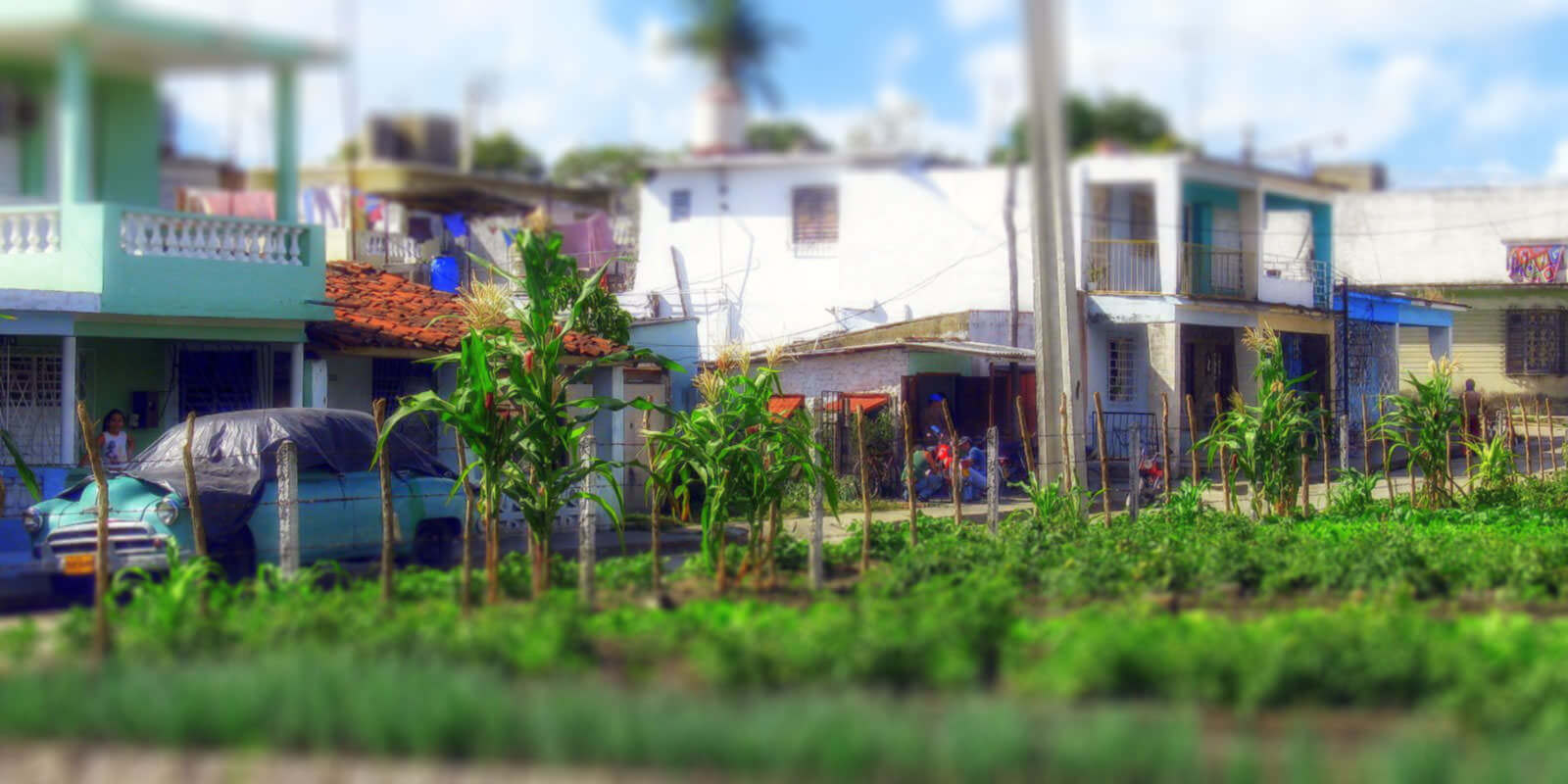

When the economic crisis of the early 1990’s began to disintegrate Cuba’s heavily industrialized and import-dependant food system, the very future of the country was at stake. Food was in short supply and the means of growing food in the highly mechanized and chemically driven manner of the past few decades was no longer available. In response to this crisis, the development of a vigorous agro-ecology framework for transforming the country’s food system emerged, including the introduction of permaculture design as away to empower urban people and their communities to achieve some of their own food security in very uncertain times.
Brigades of Australian volunteer permaculture teachers arrived in Cuba in the mid 1990’s, sharing the permaculture vision with key agriculturalists, and members of organizations like the Antonio Nunez Jimenez Foundation for Nature and Humanity (FANJ)http://permaculturebc.com/sites/all/modules/extlink/extlink.png) 100% 50% no-repeat;”> . In a few short years, FANJ began teaching permaculture throughout the country, creating a movement that would grow tremendously using a model of “campesino to campesino” (farmer to farmer) knowledge sharing. FANJ wrote a book on permaculture methods for Cuba, “Permacultura Criolla” and developed numerous other methods for spreading the possibilities of permaculture far and wide.
Permaculture has evolved in Cuba within the context of the wider agro-ecological movement and is in constant dialogue with the many organic farming, urban agriculture and food security initiatives throughout the country. While the initial stimulus for permaculture in Cuba was certainly the food crisis, the movement has broadened its focus to integrate many of the other key permaculture domains: water, energy, housing, appropriate technology, arts and culture, and alternative community structures to name a few.
